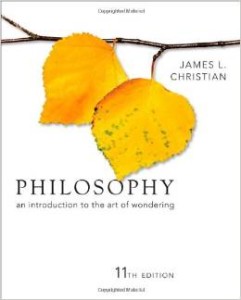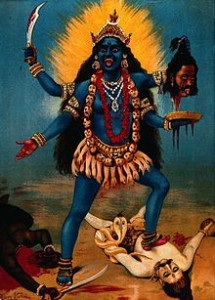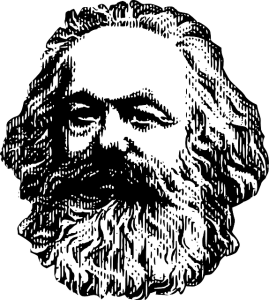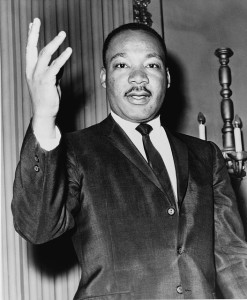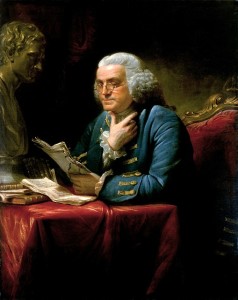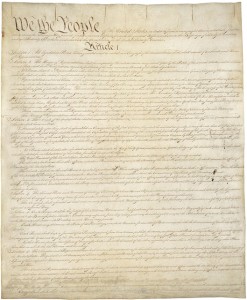Opus 006: Amendments to the US Constitution…
The US Constitution:
The Constitution of the United States is the supreme law of the United States of America. The first three Articles of the Constitution establish the rules and separate powers of the three branches of the federal government: a legislature, the bicameral Congress; an executive branch led by the President; and a federal judiciary headed by the Supreme Court. The last four Articles frame the principle of federalism. The Tenth Amendment confirms its federal characteristics.
The Constitution was adopted on September 17, 1787, by the Constitutional Convention in Philadelphia, Pennsylvania, and ratified by conventions in eleven states. It went into effect on March 4, 1789. The first ten constitutional amendments ratified by three-fourths of the states in 1791 are known as the Bill of Rights. The Constitution has been amended seventeen additional times (for a total of 27 amendments) and its principles are applied in courts of law by judicial review.
The Constitution guides American society in law and political culture. It is the oldest written national constitution in continuous use, and it influenced later international figures establishing national constitutions. Recent impulses for reform center on concerns for extending democracy and balancing the federal budget.
The Constitution consists of a preamble, seven original articles, twenty-seven amendments, and a paragraph certifying its enactment by the constitutional convention.
Preamble text:
We the People of the United States, in Order to form a more perfect Union, establish Justice, insure domestic Tranquility, provide for the common defence, promote the general Welfare, and secure the Blessings of Liberty to ourselves and our Posterity, do ordain and establish this Constitution for the United States of America.
Read more here…
http://en.wikipedia.org/wiki/US_Constitution
Full Text of Constitution:
Individual List of the 27 Amendments to the Constitution…
1st AMENDMENT
The First Amendment (Amendment I) to the United States Constitution is part of the Bill of Rights. The amendment prohibits the making of any law respecting an establishment of religion, impeding the free exercise of religion, abridging the freedom of speech, infringing on the freedom of the press, interfering with the right to peaceably assemble or prohibiting the petitioning for a governmental redress of grievances.
Text:
Congress shall make no law respecting an establishment of religion, or prohibiting the free exercise thereof; or abridging the freedom of speech, or of the press; or the right of the people peaceably to assemble, and to petition the Government for a redress of grievances.
http://en.wikipedia.org/wiki/First_Amendment_to_the_United_States_Constitution
2nd AMENDMENT
The Second Amendment (Amendment II) to the United States Constitution is the part of the United States Bill of Rights that protects the right of the people to keep and bear arms. It was adopted on December 15, 1791, along with the rest of the Bill of Rights.
Text:
As passed by the Congress:
A well regulated Militia, being necessary to the security of a free State, the right of the people to keep and bear Arms, shall not be infringed.
As ratified by the States and authenticated by Thomas Jefferson, Secretary of State:
A well regulated militia being necessary to the security of a free state, the right of the people to keep and bear arms shall not be infringed.
http://en.wikipedia.org/wiki/Second_Amendment_to_the_United_States_Constitution
3rd AMENDMENT
The Third Amendment (Amendment III) to the United States Constitution is a part of the United States Bill of Rights. It was introduced on September 5, 1789, and then three quarters of the states ratified this as well as 9 other amendments on December 15, 1791. It prohibits, in peacetime or wartime, the quartering of soldiers in private homes without the owner’s consent.
Text:
No Soldier shall, in time of peace be quartered in any house, without the consent of the Owner, nor in time of war, but in a manner to be prescribed by law.
http://en.wikipedia.org/wiki/Third_Amendment_to_the_United_States_Constitution
4th AMENDMENT
The Fourth Amendment (Amendment IV) to the United States Constitution is the part of the Bill of Rights which guards against unreasonable searches and seizures, along with requiring any warrant to be judicially sanctioned and supported by probable cause. It was adopted as a response to the abuse of the writ of assistance, which is a type of general search warrant, in the American Revolution. Search and seizure (including arrest) should be limited in scope according to specific information supplied to the issuing court, usually by a law enforcement officer, who has sworn by it. The Fourth Amendment applies to the states by way of the Due Process Clause of the Fourteenth Amendment.
Text:
The right of the people to be secure in their persons, houses, papers, and effects, against unreasonable searches and seizures, shall not be violated, and no Warrants shall issue, but upon probable cause, supported by Oath or affirmation, and particularly describing the place to be searched, and the persons or things to be seized.
http://en.wikipedia.org/wiki/4th_Amendment_to_the_United_States_Constitution
5th AMENDMENT
The Fifth Amendment (Amendment V) to the United States Constitution, which is part of the Bill of Rights, protects against abuse of government authority in a legal procedure. Its guarantees stem from English common law which traces back to Magna Carta in 1215. For instance, grand juries and the phrase due process (also found in the 14th Amendment) both trace their origin to Magna Carta.
Text:
No person shall be held to answer for a capital, or otherwise infamous crime, unless on a presentment or indictment of a Grand Jury, except in cases arising in the land or naval forces, or in the Militia, when in actual service in time of War or public danger; nor shall any person be subject for the same offense to be twice put in jeopardy of life or limb; nor shall be compelled in any criminal case to be a witness against himself, nor be deprived of life, liberty, or property, without due process of law; nor shall private property be taken for public use, without just compensation.
http://en.wikipedia.org/wiki/Fifth_Amendment_to_the_United_States_Constitution
6th AMENDMENT
The Sixth Amendment (Amendment VI) to the United States Constitution is the part of the United States Bill of Rights which sets forth rights related to criminal prosecutions. The Supreme Court has applied the protections of this amendment to the states through the Due Process Clause of the Fourteenth Amendment.
Text:
In all criminal prosecutions, the accused shall enjoy the right to a speedy and public trial, by an impartial jury of the State and district wherein the crime shall have been committed, which district shall have been previously ascertained by law, and to be informed of the nature and cause of the accusation; to be confronted with the witnesses against him; to have compulsory process for obtaining witnesses in his favor, and to have the Assistance of Counsel for his defence.
http://en.wikipedia.org/wiki/Sixth_Amendment_to_the_United_States_Constitution
7th AMENDMENT
The Seventh Amendment (Amendment VII) to the United States Constitution, which was ratified as part of the Bill of Rights, codifies the right to a jury trial in certain civil cases, and asserts that cases may not be re-examined by another court.
Text:
In Suits at common law, where the value in controversy shall exceed twenty dollars, the right of trial by jury shall be preserved, and no fact tried by a jury, shall be otherwise re-examined in any Court of the United States, than according to the rules of the common law.
http://en.wikipedia.org/wiki/7th_Amendment
8th AMENDMENT
The Eighth Amendment (Amendment VIII) to the United States Constitution is the part of the United States Bill of Rights prohibiting the federal government from imposing excessive bail, excessive fines or cruel and unusual punishments. The U.S. Supreme Court has ruled that this amendment’s Cruel and Unusual Punishment Clause applies to the states. The phrases employed originated in the English Bill of Rights of 1689.
Text:
Excessive bail shall not be required, nor excessive fines imposed, nor cruel and unusual punishments inflicted.
http://en.wikipedia.org/wiki/Eighth_Amendment_to_the_United_States_Constitution
8th AMENDMENT
The Eighth Amendment (Amendment VIII) to the United States Constitution is the part of the United States Bill of Rights prohibiting the federal government from imposing excessive bail, excessive fines or cruel and unusual punishments. The U.S. Supreme Court has ruled that this amendment’s Cruel and Unusual Punishment Clause applies to the states. The phrases employed originated in the English Bill of Rights of 1689.
Text:
Excessive bail shall not be required, nor excessive fines imposed, nor cruel and unusual punishments inflicted.
http://en.wikipedia.org/wiki/Eighth_Amendment_to_the_United_States_Constitution
9th AMENDMENT
The Ninth Amendment (Amendment IX) to the United States Constitution, which is part of the Bill of Rights, addresses rights of the people that are not specifically enumerated in the Constitution.
Text:
The enumeration in the Constitution, of certain rights, shall not be construed to deny or disparage others retained by the people.
http://en.wikipedia.org/wiki/Ninth_Amendment_to_the_United_States_Constitution
10th AMENDMENT
The Tenth Amendment (Amendment X) to the United States Constitution, which is part of the Bill of Rights, was ratified on December 15, 1791. The Tenth Amendment states the Constitution’s principle of federalism by providing that powers not granted to the federal government nor prohibited to the States by the Constitution are reserved to the States or the people.
Text:
The powers not delegated to the United States by the Constitution, nor prohibited by it to the States, are reserved to the States respectively, or to the people.
http://en.wikipedia.org/wiki/10th_amendment
11th AMENDMENT
The Eleventh Amendment (Amendment XI) to the United States Constitution, which was passed by the Congress on March 4, 1794, and was ratified on February 7, 1795, deals with each state’s sovereign immunity. This amendment was adopted in order to overrule the U.S. Supreme Court’s decision in Chisholm v. Georgia, 2 U.S. 419 (1793).
Text:
The Judicial power of the United States shall not be construed to extend to any suit in law or equity, commenced or prosecuted against one of the United States by Citizens of another State, or by Citizens or Subjects of any Foreign State.
http://en.wikipedia.org/wiki/Eleventh_Amendment_to_the_United_States_Constitution
12th AMENDMENT
The Twelfth Amendment (Amendment XII) to the United States Constitution provides the procedure for electing the President and Vice President. It replaced Article II, Section 1, Clause 3, which provided the original procedure by which the Electoral College functioned. Problems with the original procedure arose in the elections of 1796 and 1800. The Twelfth Amendment was proposed by the Congress on December 9, 1803, and was ratified by the required number of state legislatures on June 15, 1804.
Text:
The Electors shall meet in their respective states, and vote by ballot for President and Vice-President, one of whom, at least, shall not be an inhabitant of the same state with themselves; they shall name in their ballots the person voted for as President, and in distinct ballots the person voted for as Vice-President, and they shall make distinct lists of all persons voted for as President, and all persons voted for as Vice-President and of the number of votes for each, which lists they shall sign and certify, and transmit sealed to the seat of the government of the United States, directed to the President of the Senate.
The person having the greatest Number of votes for President, shall be the President, if such number be a majority of the whole number of Electors appointed; and if no person have such majority, then from the persons having the highest numbers not exceeding three on the list of those voted for as President, the House of Representatives shall choose immediately, by ballot, the President. But in choosing the President, the votes shall be taken by states, the representation from each state having one vote; a quorum for this purpose shall consist of a member or members from two-thirds of the states, and a majority of all the states shall be necessary to a choice. And if the House of Representatives shall not choose a President whenever the right of choice shall devolve upon them, before the fourth day of March next following, then the Vice-President shall act as President, as in the case of the death or other constitutional disability of the President.
The person having the greatest number of votes as Vice-President, shall be the Vice-President, if such number be a majority of the whole number of Electors appointed, and if no person have a majority, then from the two highest numbers on the list, the Senate shall choose the Vice-President; a quorum for the purpose shall consist of two-thirds of the whole number of Senators, and a majority of the whole number shall be necessary to a choice. But no person constitutionally ineligible to the office of President shall be eligible to that of Vice-President of the United States.
http://en.wikipedia.org/wiki/12th_Amendment
13th AMENDMENT
The Thirteenth Amendment to the United States Constitution officially outlaws slavery and involuntary servitude, except as punishment for a crime. It was passed by the Senate on April 8, 1864, by the House on January 31, 1865, and adopted on December 6, 1865. On December 18, Secretary of State William H. Seward proclaimed it to have been adopted. It was the first of the three Reconstruction Amendments adopted after the American Civil War.
President Lincoln and other Republicans were concerned that the Emancipation Proclamation, which in 1863 declared the freedom of slaves in ten Confederate states then in rebellion, would be seen as a temporary war measure, since it was solely based on Lincoln’s war powers. The Proclamation did not free any slaves in the border states nor itself make slavery illegal.
Text:
Section 1. Neither slavery nor involuntary servitude, except as a punishment for crime whereof the party shall have been duly convicted, shall exist within the United States, or any place subject to their jurisdiction.
Section 2. Congress shall have power to enforce this article by appropriate legislation.
http://en.wikipedia.org/wiki/Thirteenth_Amendment_to_the_United_States_Constitution
14th AMENDMENT
The Fourteenth Amendment (Amendment XIV) to the United States Constitution was adopted on July 9, 1868, as one of the Reconstruction Amendments.
Its Citizenship Clause provides a broad definition of citizenship that overruled the Supreme Court’s ruling in Dred Scott v. Sandford (1857) that had held that black people could not be citizens of the United States.
Its Due Process Clause prohibits state and local governments from depriving persons of life, liberty, or property without certain steps being taken to ensure fairness. This clause has been used to make most of the Bill of Rights applicable to the states, as well as to recognize substantive and procedural rights.
Its Equal Protection Clause requires each state to provide equal protection under the law to all people within its jurisdiction. This clause was the basis for Brown v. Board of Education (1954), the Supreme Court decision which precipitated the dismantling of racial segregation in United States education. In Reed v. Reed (1971), the Supreme Court ruled that laws arbitrarily requiring sex discrimination violated the Equal Protection Clause.
The amendment also includes a number of clauses dealing with the Confederacy and its officials.
Text:
Section 1. All persons born or naturalized in the United States, and subject to the jurisdiction thereof, are citizens of the United States and of the State wherein they reside. No State shall make or enforce any law which shall abridge the privileges or immunities of citizens of the United States; nor shall any State deprive any person of life, liberty, or property, without due process of law; nor deny to any person within its jurisdiction the equal protection of the laws.
Section 2. Representatives shall be apportioned among the several States according to their respective numbers, counting the whole number of persons in each State, excluding Indians not taxed. But when the right to vote at any election for the choice of electors for President and Vice President of the United States, Representatives in Congress, the Executive and Judicial officers of a State, or the members of the Legislature thereof, is denied to any of the male inhabitants of such State, being twenty-one years of age, and citizens of the United States, or in any way abridged, except for participation in rebellion, or other crime, the basis of representation therein shall be reduced in the proportion which the number of such male citizens shall bear to the whole number of male citizens twenty-one years of age in such State.
Section 3. No person shall be a Senator or Representative in Congress, or elector of President and Vice President, or hold any office, civil or military, under the United States, or under any State, who, having previously taken an oath, as a member of Congress, or as an officer of the United States, or as a member of any State legislature, or as an executive or judicial officer of any State, to support the Constitution of the United States, shall have engaged in insurrection or rebellion against the same, or given aid or comfort to the enemies thereof. But Congress may, by a vote of two-thirds of each House, remove such disability.
Section 4. The validity of the public debt of the United States, authorized by law, including debts incurred for payment of pensions and bounties for services in suppressing insurrection or rebellion, shall not be questioned. But neither the United States nor any State shall assume or pay any debt or obligation incurred in aid of insurrection or rebellion against the United States, or any claim for the loss or emancipation of any slave; but all such debts, obligations and claims shall be held illegal and void.
Section 5. The Congress shall have power to enforce, by appropriate legislation, the provisions of this article.
http://en.wikipedia.org/wiki/Fourteenth_Amendment_to_the_United_States_Constitution
15th AMENDMENT
The Fifteenth Amendment (Amendment XV) to the United States Constitution prohibits each government in the United States from denying a citizen the right to vote based on that citizen’s “race, color, or previous condition of servitude” (for example, slavery). It was ratified on February 3, 1870.
The Fifteenth Amendment is one of the Reconstruction Amendments.
Text:
Section 1. The right of citizens of the United States to vote shall not be denied or abridged by the United States or by any State on account of race, color, or previous condition of servitude.
Section 2. The Congress shall have power to enforce this article by appropriate legislation.
http://en.wikipedia.org/wiki/Fifteenth_Amendment_to_the_United_States_Constitution
16th AMENDMENT
The Sixteenth Amendment (Amendment XVI) to the United States Constitution allows the Congress to levy an income tax without apportioning it among the states or basing it on Census results. This amendment exempted income taxes from the constitutional requirements regarding direct taxes, after income taxes on rents, dividends, and interest were ruled to be direct taxes in Pollock v. Farmers’ Loan & Trust Co. (1895). It was ratified on February 3, 1913.
Text:
The Congress shall have power to lay and collect taxes on incomes, from whatever source derived, without apportionment among the several States, and without regard to any census or enumeration.
Article I, Section 2, Clause 3:
Representatives and direct taxes shall be apportioned among the several States which may be included within this Union, according to their respective Numbers…[1]
Article I, Section 8, Clause 1:
The Congress shall have Power to lay and collect Taxes, Duties, Imposts and Excises, to pay the Debts and provide for the common Defence and general Welfare of the United States; but all Duties, Imposts and Excises shall be uniform throughout the United States.
Article I, Section 9, Clause 4:
No Capitation, or other direct, Tax shall be laid, unless in proportion to the Census or Enumeration herein before directed to be taken.
This clause basically refers to a tax on property, such as a tax based on the value of land,[2] as well as a capitation.
http://en.wikipedia.org/wiki/16th_amendment
17th AMENDMENT
The Seventeenth Amendment (Amendment XVII) to the United States Constitution established direct election of United States Senators by popular vote. The amendment supersedes Article I, § 3, Clauses 1 and 2 of the Constitution, under which senators were elected by state legislatures. It also alters the procedure for filling vacancies in the Senate, allowing for state legislatures to permit their governors to make temporary appointments until a special election can be held. Under the original provisions of the Constitution, senators were elected by state legislatures; this was intended to ensure that the Federal government contained representatives of the states, and also to provide a body not dependent on popular support that could afford to “take a more detached view of issues coming before Congress.”[1] However, over time various perceived issues with these provisions, such as the risk of corruption and the potential for electoral deadlocks or a lack of representation should a seat become vacant, led to a campaign for reform.
Reformers tabled constitutional amendments in 1828, 1829 and 1855, with the issues finally reaching a head during the 1890s and 1900s. Progressives, such as William Jennings Bryan, called for reform to the way senators were chosen. Elihu Root and George Frisbie Hoar were prominent figures in the campaign to maintain the state legislative selection of senators. By 1910, 31 state legislatures had passed motions calling for reform. By 1912, 239 political parties at both the state and national level had pledged some form of direct election, and 33 states had introduced the use of direct primaries. With a campaign for a state-led constitutional amendment gaining strength, and a fear that this could result in a “runaway convention”, the proposal to mandate direct elections for the Senate was finally introduced in the Congress. It was passed by the Congress and on May 13, 1912, was submitted to the states for ratification. By April 8, 1913, three-fourths of the states had ratified the proposed amendment, making it the Seventeenth Amendment. Secretary of State Bryan formally declared the amendment’s adoption on May 31, 1913.
Critics of the Seventeenth Amendment claim that by altering the way senators are elected, the states lost any representation they had in the federal government and that this led to the gradual “slide into ignominy” of state legislatures,[2] as well as an overextension of federal power and the rise of special interest groups to fill the power vacuum previously occupied by state legislatures. In addition, concerns have been raised about the power of governors to appoint temporary replacements to fill vacant senate seats, both in terms of how this provision should be interpreted and whether it should be permitted at all. Accordingly, noted public figures have expressed a desire to reform or even repeal the Seventeenth Amendment.
Text:
The Senate of the United States shall be composed of two Senators from each State, elected by the people thereof, for six years; and each Senator shall have one vote. The electors in each State shall have the qualifications requisite for electors of the most numerous branch of the State legislatures.
When vacancies happen in the representation of any State in the Senate, the executive authority of such State shall issue writs of election to fill such vacancies: Provided, That the legislature of any State may empower the executive thereof to make temporary appointments until the people fill the vacancies by election as the legislature may direct.
This amendment shall not be so construed as to affect the election or term of any Senator chosen before it becomes valid as part of the Constitution.
http://en.wikipedia.org/wiki/Seventeenth_Amendment_to_the_United_States_Constitution
18th AMENDMENT
The Eighteenth Amendment (Amendment XVIII) of the United States Constitution established prohibition of alcoholic beverages in the United States. The separate Volstead Act set down methods of enforcing the Eighteenth Amendment, and defined which “intoxicating liquors” were prohibited, and which were excluded from prohibition (e.g., for medical and religious purposes). The Amendment was the first to set a time delay before it would take effect following ratification, and the first to set a time limit for its ratification by the states. Its ratification was certified on January 16, 1919, with the law taking effect on January 17, 1920.
Demand for liquor continued, and the law resulted in the criminalization of producers, suppliers, transporters and consumers. The police, courts and prisons were overwhelmed with new cases; organized crime increased in power, and corruption extended among law enforcement officials. The amendment was repealed in 1933 by ratification of the Twenty-first Amendment, the only instance in United States history of repeal of a constitutional amendment.
Text:
Section 1. After one year from the ratification of this article the manufacture, sale, or transportation of intoxicating liquors within, the importation thereof into, or the exportation thereof from the United States and all territory subject to the jurisdiction thereof for beverage purposes is hereby prohibited.
Section 2. The Congress and the several States shall have concurrent power to enforce this article by appropriate legislation.
Section 3. This article shall be inoperative unless it shall have been ratified as an amendment to the Constitution by the legislatures of the several States, as provided in the Constitution, within seven years from the date of the submission hereof to the States by the Congress.
http://en.wikipedia.org/wiki/Eighteenth_Amendment_to_the_United_States_Constitution
19th AMENDMENT
The Nineteenth Amendment (Amendment XIX) to the United States Constitution prohibits any United States citizen to be denied the right to vote based on sex. It was ratified on August 18, 1920. The Constitution allows the states to determine the qualifications for voting, and until the 1910s most states disenfranchised women. The amendment was the culmination of the women’s suffrage movement in the United States, which fought at both state and national levels to achieve the vote. It effectively overruled Minor v. Happersett, in which a unanimous Supreme Court ruled that the Fourteenth Amendment did not apply to women or give them a right to vote.
Susan B. Anthony and Elizabeth Cady Stanton drafted the amendment and first introduced it in 1878; it was forty-one years later, in 1919, when the Congress submitted the amendment to the states for ratification. A year later, it was ratified by the requisite number of states, with Tennessee’s ratification being the final vote needed to add the amendment to the Constitution. In Leser v. Garnett (1922), the Supreme Court rejected claims that the amendment was unconstitutionally adopted.
Text:
The right of citizens of the United States to vote shall not be denied or abridged by the United States or by any State on account of sex.
Congress shall have power to enforce this article by appropriate legislation.
http://en.wikipedia.org/wiki/Nineteenth_Amendment_to_the_United_States_Constitution
20th AMENDMENT
The Twentieth Amendment (Amendment XX) to the United States Constitution establishes the beginning and ending of the terms of the elected federal offices. It also deals with scenarios in which there is no President-elect. The Twentieth Amendment was ratified on January 23, 1933.
Text:
Section 1. The terms of the President and Vice President shall end at noon on the 20th day of January, and the terms of Senators and Representatives at noon on the 3d day of January, of the years in which such terms would have ended if this article had not been ratified; and the terms of their successors shall then begin.
Section 2. The Congress shall assemble at least once in every year, and such meeting shall begin at noon on the 3d day of January, unless they shall by law appoint a different day.
Section 3. If, at the time fixed for the beginning of the term of the President, the President elect shall have died, the Vice President elect shall become President. If a President shall not have been chosen before the time fixed for the beginning of his term, or if the President elect shall have failed to qualify, then the Vice President elect shall act as President until a President shall have qualified; and the Congress may by law provide for the case wherein neither a President elect nor a Vice President elect shall have qualified, declaring who shall then act as President, or the manner in which one who is to act shall be selected, and such person shall act accordingly until a President or Vice President shall have qualified.
Section 4. The Congress may by law provide for the case of the death of any of the persons from whom the House of Representatives may choose a President whenever the right of choice shall have devolved upon them, and for the case of the death of any of the persons from whom the Senate may choose a Vice President whenever the right of choice shall have devolved upon them.
Section 5. Sections 1 and 2 shall take effect on the 15th day of October following the ratification of this article.
Section 6. This article shall be inoperative unless it shall have been ratified as an amendment to the Constitution by the legislatures of three-fourths of the several States within seven years from the date of its submission.
http://en.wikipedia.org/wiki/20th_Amendment
21st AMENDMENT
The Twenty-first Amendment (Amendment XXI) to the United States Constitution repealed the Eighteenth Amendment to the United States Constitution, which had mandated nationwide Prohibition on alcohol on January 17, 1920. The Twenty-first amendment was ratified on December 5, 1933. It is unique among the 27 Amendments of the U.S. Constitution for being the only one to repeal a previous Amendment, and for being the only one to have been ratified by the method of the state ratifying convention.
Text:
Section 1. The eighteenth article of amendment to the Constitution of the United States is hereby repealed.
Section 2. The transportation or importation into any State, Territory, or possession of the United States for delivery or use therein of intoxicating liquors, in violation of the laws thereof, is hereby prohibited.
Section 3. This article shall be inoperative unless it shall have been ratified as an amendment to the Constitution by conventions in the several States, as provided in the Constitution, within seven years from the date of the submission hereof to the States by the Congress.
http://en.wikipedia.org/wiki/Twenty-first_Amendment_to_the_United_States_Constitution
22nd AMENDMENT
The Twenty-second Amendment of the United States Constitution sets a term limit for election to the office of President of the United States. The Congress passed the amendment on March 21, 1947. It was ratified by the requisite number of states on February 27, 1951.
Text:
Section 1. No person shall be elected to the office of the President more than twice, and no person who has held the office of President, or acted as President, for more than two years of a term to which some other person was elected President shall be elected to the office of the President more than once. But this article shall not apply to any person holding the office of President when this article was proposed by the Congress, and shall not prevent any person who may be holding the office of President, or acting as President, during the term within which this article becomes operative from holding the office of President or acting as President during the remainder of such term.
Section 2. This article shall be inoperative unless it shall have been ratified as an amendment to the Constitution by the legislatures of three-fourths of the several States within seven years from the date of its submission to the States by the Congress.
http://en.wikipedia.org/wiki/22nd_amendment
23rd AMENDMENT
The Twenty-third Amendment (Amendment XXIII) to the United States Constitution permits citizens in the District of Columbia to vote for Electors for President and Vice President. The amendment was proposed by Congress on June 17, 1960, and ratified by the states on March 29, 1961. The first Presidential election in which it was in effect was the presidential election of 1964. Prior to the passage of the amendment, residents of Washington, D.C. were forbidden from voting for President or Vice President as the District is not a U.S. state. However, they are still unable to send voting Representatives or Senators to Congress.
The amendment restricts the district to the number of Electors of the least populous state, irrespective of its own population. As of 2011, that state is Wyoming, which has three Electors. However, even without this clause, the district’s present population would only entitle it to three Electors. Since the passage of this amendment, the District’s electoral votes have gone towards the Democratic candidates in every presidential election.
Text:
Section 1. The District constituting the seat of Government of the United States shall appoint in such manner as the Congress may direct:
A number of electors of President and Vice President equal to the whole number of Senators and Representatives in Congress to which the District would be entitled if it were a State, but in no event more than the least populous State; they shall be in addition to those appointed by the States, but they shall be considered, for the purposes of the election of President and Vice President, to be electors appointed by a State; and they shall meet in the District and perform such duties as provided by the twelfth article of amendment.
Section 2. The Congress shall have power to enforce this article by appropriate legislation.
http://en.wikipedia.org/wiki/Twenty-third_Amendment_to_the_United_States_Constitution
24th AMENDMENT
The Twenty-fourth Amendment (Amendment XXIV) prohibits both Congress and the states from conditioning the right to vote in federal elections on payment of a poll tax or other types of tax. The amendment was proposed by Congress to the states on August 27, 1962, and was ratified by the states on January 23, 1964.
Poll taxes appeared in southern states after Reconstruction as a measure to prevent African Americans from voting, and had been held to be constitutional by the Supreme Court of the United States in the 1937 decision Breedlove v. Suttles. At the time of this amendment’s passage, five states still retained a poll tax: Virginia, Alabama, Texas, Arkansas, and Mississippi. The amendment made the poll tax unconstitutional in regards to federal elections. However, it was not until the U.S. Supreme Court ruled 6–3 in Harper v. Virginia Board of Elections (1966) that poll taxes for state elections were unconstitutional because they violated the Equal Protection Clause of the Fourteenth Amendment.
Text:
Section 1. The right of citizens of the United States to vote in any primary or other election for President or Vice President, for electors for President or Vice President, or for Senator or Representative in Congress, shall not be denied or abridged by the United States or any State by reason of failure to pay any poll tax or other tax.
Section 2. The Congress shall have power to enforce this article by appropriate legislation.
http://en.wikipedia.org/wiki/24th_Amendment
25th AMENDMENT
The Twenty-fifth Amendment (Amendment XXV) to the United States Constitution deals with succession to the Presidency and establishes procedures both for filling a vacancy in the office of the Vice President, as well as responding to Presidential disabilities. It supersedes the ambiguous wording of Article II, Section 1, Clause 6 of the Constitution, which does not expressly state whether the Vice President becomes the President, as opposed to an Acting President, if the President dies, resigns, is removed from office or is otherwise unable to discharge the powers of the presidency. The Twenty-fifth Amendment was adopted on February 23, 1967.
Text:
Section 1. In case of the removal of the President from office or of his death or resignation, the Vice President shall become President.
Section 2. Whenever there is a vacancy in the office of the Vice President, the President shall nominate a Vice President who shall take office upon confirmation by a majority vote of both Houses of Congress.
Section 3. Whenever the President transmits to the President pro tempore of the Senate and the Speaker of the House of Representatives his written declaration that he is unable to discharge the powers and duties of his office, and until he transmits to them a written declaration to the contrary, such powers and duties shall be discharged by the Vice President as Acting President.
Section 4. Whenever the Vice President and a majority of either the principal officers of the executive departments or of such other body as Congress may by law provide, transmit to the President pro tempore of the Senate and the Speaker of the House of Representatives their written declaration that the President is unable to discharge the powers and duties of his office, the Vice President shall immediately assume the powers and duties of the office as Acting President.
Thereafter, when the President transmits to the President pro tempore of the Senate and the Speaker of the House of Representatives his written declaration that no inability exists, he shall resume the powers and duties of his office unless the Vice President and a majority of either the principal officers of the executive department or of such other body as Congress may by law provide, transmit within four days to the President pro tempore of the Senate and the Speaker of the House of Representatives their written declaration that the President is unable to discharge the powers and duties of his office. Thereupon Congress shall decide the issue, assembling within forty-eight hours for that purpose if not in session. If the Congress, within twenty-one days after receipt of the latter written declaration, or, if Congress is not in session, within twenty-one days after Congress is required to assemble, determines by two-thirds vote of both Houses that the President is unable to discharge the powers and duties of his office, the Vice President shall continue to discharge the same as Acting President; otherwise, the President shall resume the powers and duties of his office.
http://en.wikipedia.org/wiki/Twenty-fifth_Amendment_to_the_United_States_Constitution
26th AMENDMENT
The Twenty-sixth Amendment (Amendment XXVI) to the United States Constitution barred the states or federal government from setting a voting age higher than eighteen. It was adopted in response to student activism against the Vietnam War and to partially overrule the Supreme Court’s decision in Oregon v. Mitchell. It was adopted on July 1, 1971.
Text:
Section 1. The right of citizens of the United States, who are eighteen years of age or older, to vote shall not be denied or abridged by the United States or by any State on account of age.
Section 2. The Congress shall have the power to enforce this article by appropriate legislation.
http://en.wikipedia.org/wiki/Twenty-sixth_Amendment_to_the_United_States_Constitution
27th AMENDMENT
The Twenty-seventh Amendment (Amendment XXVII) prohibits any law that increases or decreases the salary of members of the Congress from taking effect until the start of the next set of terms of office for Representatives. It is the most recent amendment to the United States Constitution, having been ratified in 1992, despite its initial submission 203 years prior.
Text:
No law, varying the compensation for the services of the Senators and Representatives, shall take effect, until an election of Representatives shall have intervened.
http://en.wikipedia.org/wiki/Twenty-seventh_Amendment_to_the_United_States_Constitution

